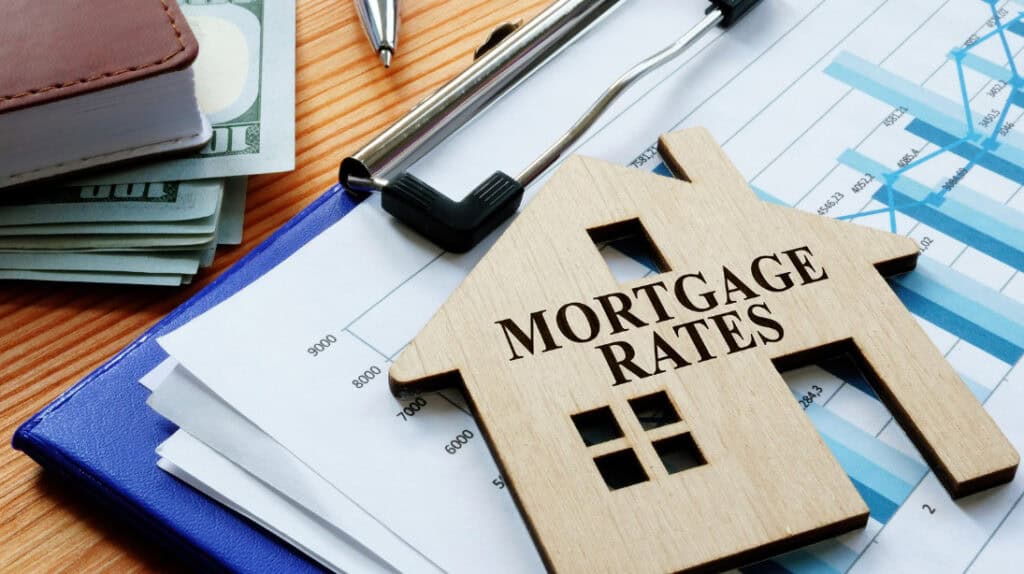Purchasing a home typically involves obtaining a mortgage, which requires regular payments as you slowly own the property. This is one of the most significant purchases of your life and is a lengthy process that requires a large portion of your spendable income.
Table of Contents
Mortgages are paid to pay the least interest. However, this is out of your control as the bank sets the rate offered to you. There are, however, some things you can do to tilt the percentage in your favour.
Here are some practical tips on how you can get low interest rates on mortgages.

Shop Around for Low Interest Rates on Mortgages
There are many different lending institutions, both brick-and-mortar and online, competing for your business. However, they still need to actively undercut their rivals daily while offering financial products within their lending guidelines.
If you want a mortgage, research the various lenders’ offers, compare them, and see what works best for you. Rates also vary depending on mortgage terms and amortization, so you can get a lower percentage if you change the mortgage length.

Mortgage Agent
You only have so much time to shop around, and you are a stranger to other institutions besides your regular banking company. Building a rapport and history with a bank is an effective way to get a lower rate.
A mortgage agent is a licensed individual who works with many lenders, unlike a mortgage specialist that a particular bank may use. This agent develops relationships with financial institutions and works in high volumes to get better rates than you can get yourself.
Mortgage agents work for you, getting the right information to take to the bank. They ensure that you are viewed in the best light, so they get competitive interest rates that help you pay less.
This is the best way to obtain a lower interest rate on your next mortgage. Because the bank pays mortgage agents, it is a free service for you.
By following these ideas, you can get a low-interest mortgage rate. Paying less for your property is key to homeowner survival and success, giving you financial breathing room for other pursuits.
Deal with Your Credit Score
With every credit card charge and loan payment, a profile is built that serves as your credit score. Lending institutions look at this to determine lending risk. The higher your score, the lower the rates you can get.
This is where you can affect your ability to get a lower rate. Things like late or default payments and collection items lower your credit score.
However, on the flip side, making regular payments and having low credit card balances build up the rating. By handling borrowed money and credit diligently, you can negotiate more effectively when getting a mortgage.
Manage the Stability of Your Income
Lenders want to ensure you can make your mortgage payments. If you show them a stable history of income, this helps them offer you their top rates.
Beyond having a regular income flow is how you spend it. Income stability is also the management of your money. You can improve this by staying within your means as you build a savings and investment portfolio.
If you need to increase your income, consider taking on a second job or developing a side hustle that brings in money. Lenders have debt-to-service ratios for qualifying borrowers, so make sure yours is as low as possible.
Have a Large Downpayment
When applying for a home loan, your bank wants you to have a financial interest in the deal. This interest comes in the form of a down payment, and it serves two purposes. First, it shows the bank that you can manage your money effectively. Second, it decreases the amount you need to borrow.
You will need mortgage loan insurance if you only put down 5%. This minimum increase depends on the home’s purchase price. To avoid the premium, you need at least 20% as a down payment, but a lower interest rate also comes.
For some lenders, a higher down payment is a negative because an insured mortgage means they don’t have to hold as much capital and may offer you a lower rate. In contrast, an uninsured mortgage has them taking on all the default liability.
Again, this depends on the bank, but with a larger down payment, you won’t pay as much interest over time.

Lock in Your Interest Rate
Consider locking it in immediately if you’ve been offered an attractive mortgage interest rate. Since interest rates often change with the market, securing your rate means it won’t go up before you finalize your home purchase.
Rate locks usually last 30 to 60 days and vary by lender. Ask your lender about their policy and fees. With your rate locked, you can relax, knowing your mortgage payments won’t increase unexpectedly.
Think About Mortgage Points
Mortgage points are upfront fees you pay the lender to reduce your interest rate. One point equals 1% of your loan amount, and typically, a point lowers your rate by 0.25%. This move is beneficial if you’re settling into your home for the long haul and wish to reduce the total interest paid.
When considering points, reflect on how long you’ll live in the house and what you can handle at closing time. A mortgage points calculator can help you find when your lower interest payments balance out the cost of the points.
Choose a Shorter Loan Term
Look at shorter loan terms for a lower interest rate, like 15 years instead of 30. Banks prefer these loans because they get their money back sooner and with less risk. In the long run, you’ll save on interest if you choose a short-term loan, even if your monthly payments are steeper.
Before deciding on this option, ensure the higher payments fit your budget without strain. Remember that with this fast-track approach to paying off your mortgage, you’ll likely gain equity quicker and enjoy more financial leeway.



